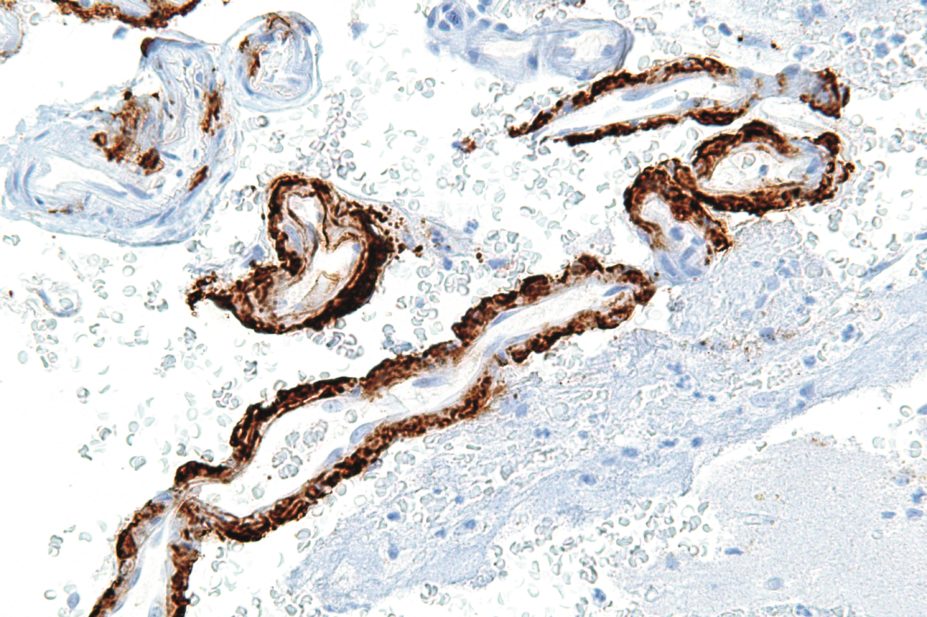
Nephron / Wikimedia Commons
Alzheimer’s disease (AD) is characterised by the pathological accumulation of amyloid beta (Aβ) and tau proteins, which are highly toxic and cause synaptic and mitochondrial dysfunction.
Writing in the Journal of Neuroscience
[1]
(2015;35(12):4857–4868), US scientists report promising early findings with an anti-tau oligomer specific monoclonal antibody (TOMA). When administered to mice with experimental AD, TOMA reduced levels of tau oligomers in the brain and reversed memory deficits.
Unexpectedly, the therapy also reduced levels of Aβ oligomers, which suggests that tau oligomerisation is not only a consequence of Aβ pathology but also a critical mediator of the toxic consequences observed in AD. “These findings support the potential of tau oligomers as a therapeutic target for AD,” the team concludes.

